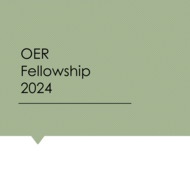
(View Complete Item Description)
Short Description:
An open textbook that is suitable for the first semester of Organic Chemistry. Basic concepts of the structures and reactivities of organic molecules are covered in this open textbook. Besides the fundamental discussions of organic acids-bases, stereochemistry, IR and NMR, this book also includes the topics of substitution and elimination reactions, radical substitution of alkanes, preparation and reactions of alkenes and alkynes.
Long Description:
Due to the high price barrier, about half of Organic Chemistry students at KPU do not have access to the textbook. This has become a serious issue that significantly affects the learning outcomes for the course. The creation of this open textbook is intended to provide a solution to this problem and help students get success in this course.
The book contains ten chapters, with the contents cover from the basic concepts on chemical bonding, functional group, to stereochemistry, spectroscopy for structure determination (IR and NMR) and organic reactions (nucleophilic substitution, elimination, radical substitution of alkanes, addition and oxidation reactions of alkenes, preparation and reactions of alkynes).
Organic Chemistry is a challenging subject for lots students. To help readers understand the concepts more easily, simple and concise languages are intentionally applied in the book. The featured shaded textbox areas are included frequently in the book, where readers can find useful learning tips, reminder of common errors, comparison between similar concepts. To help readers develop the problem-solving skills, a small section labelled as “strategy” is usually given for the examples in the book. Readers are encouraged to try solving the problems by themselves with helpful hints provided in the “strategy”, and then compare their work with the detailed solutions provided afterwards.
Word Count: 60578
ISBN: 978-1-989864-52-4
(Note: This resource's metadata has been created automatically by reformatting and/or combining the information that the author initially provided as part of a bulk import process.)
Material Type:
Textbook
Author:
Xin Liu
















